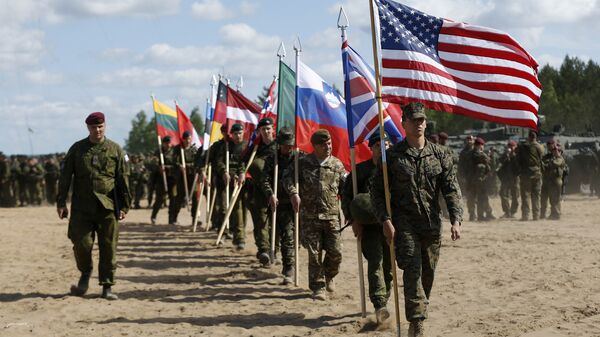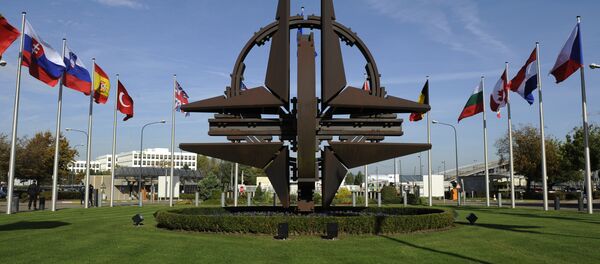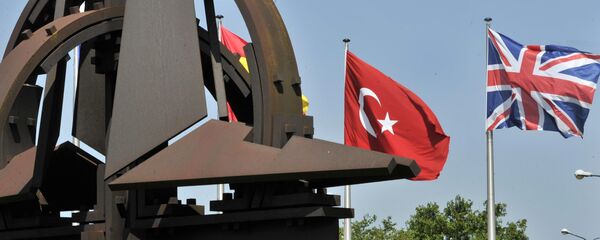While NATO is preparing to celebrate its sixty-seventh anniversary in April, the time has come to question whether the alliance's policies really comply with America's national interests.
The bloc was created in 1949 during the Cold War between the US and the USSR. After the fall of the Soviet Union, the entire security environment changed. However, Washington and its allies continue to push ahead with NATO's expansion, citing a wide range of real and phantom threats.
"The European security environment has changed in another significant way since NATO's creation. During the early decades of the alliance, Washington's goal was to preserve the security of major players, such as West Germany, Italy, France and Britain. Since the collapse of the Soviet Union in 1991, though, US leaders have pushed for the expansion of the alliance into Central and even Eastern Europe, adding marginal allies with the casual attitude that some people add Facebook friends," Ted Galen Carpenter, an American author and senior fellow at the Cato Institute, wrote in his Op-Ed for The National Interest.
On the other hand, he argues, new NATO members, like Montenegro, for instance, add nothing to America's security and the alliance's military might.
He points out that NATO's initial role as a bastion of major European powers in the Cold War era has degraded into that of a protector of a "collection of tiny players" in Eastern Europe.
As a result, "the buildup of US forces on Russia's western frontier has contributed significantly to the deterioration of bilateral relations."
Remarkably, Carpenter fails to mention NATO member Turkey's treacherous attack against a Russian Su-24 bomber in Syrian airspace on November 24, 2015. The irresponsible move threatened to escalate into a serious conflict between the alliance and Russia. Thus unsurprisingly, some US military experts offered to kick Turkey out of NATO, following the attack.
"America's NATO policy is increasingly failing the most basic tests of relevance and prudence. It is well past time to conduct a comprehensive review and consider even the most drastic option: US withdrawal from the alliance," Carpenter stresses.
US presidential candidate Donald Trump shares his stance on the future of the alliance.
N.A.T.O. is obsolete and must be changed to additionally focus on terrorism as well as some of the things it is currently focused on!
— Donald J. Trump (@realDonaldTrump) 24 марта 2016 г.
"NATO is obsolete and must be changed to additionally focus on terrorism as well as some of the things it is currently focused on!" Trump Tweeted on March 24.
"NATO was set up at a different time. NATO was set up when we were a richer country. We're not a rich country. We're borrowing, we're borrowing all of this money," Trump said during his meeting with the Washington Post's editorial board.
"NATO is costing us a fortune and yes, we're protecting Europe but we're spending a lot of money. Number 1, I think the distribution of costs has to be changed," he said.
At the same time, European analysts express doubts that NATO really protects the EU from modern-day menaces.
Referring to the recent Brussels terror attacks, French journalist and founder of the Agora Erasmus movement Karel Vereycken told Sputnik that NATO has obviously failed to mitigate the threat posed by Daesh, al-Qaeda and other Islamist organizations to Europe.
"NATO's secret wars created, not only the breeding ground for the evil terrorism, but also the chaos of the refugee crisis. So the policies that were promoted by our leaders yesterday, willfully or by our submission, are now backfiring as a boomerang and hitting us with full force in the face," Agora Erasmus' official statement reads.
The Pentagon and NATO officials' claim that Russia represents a serious challenge to the US and its allies does not hold water, the journalist added, stressing that the EU will win "from detente, entente and cooperation with Vladimir Putin's Russia."



